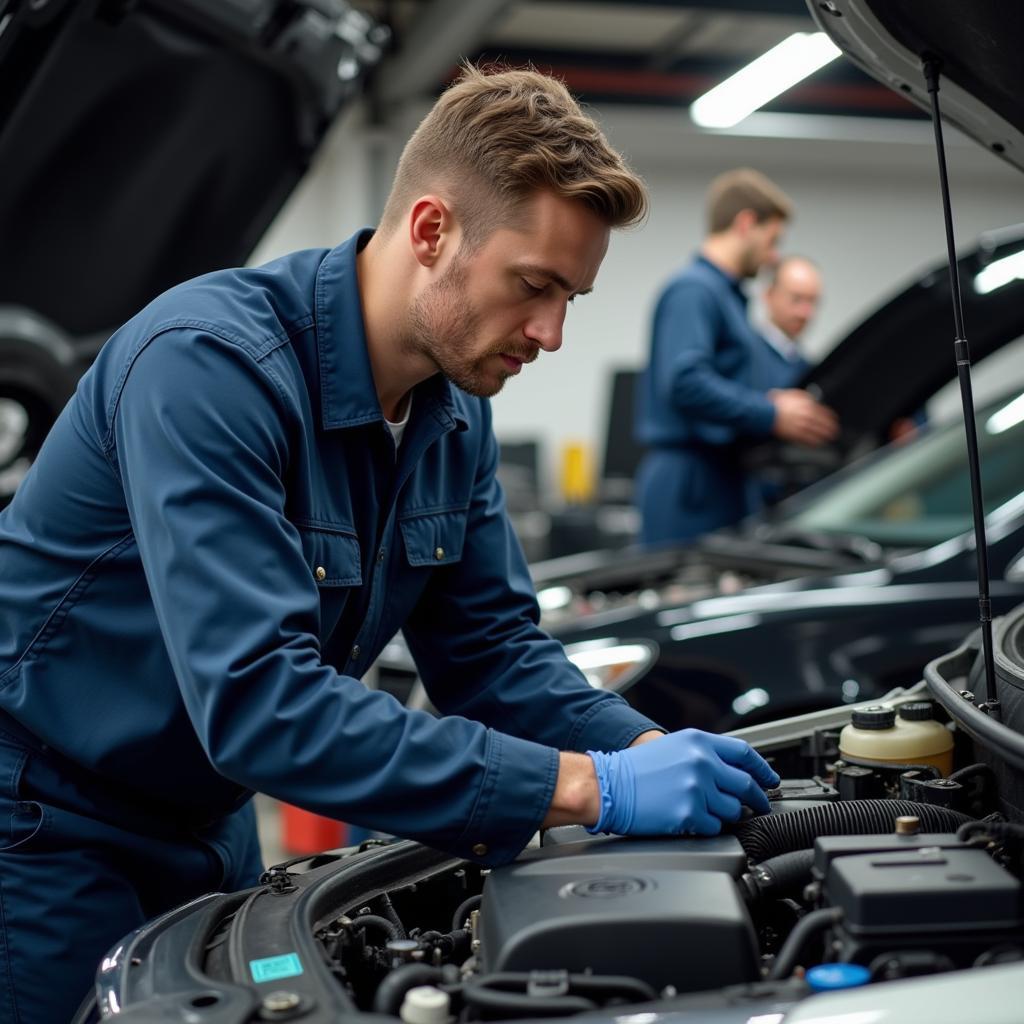What is an Interim Car Service?
An interim car service is a preventative maintenance check-up for your car that falls between a full service and a basic oil change. It’s designed to keep your car running smoothly and safely by addressing potential issues before they become major problems. But when do you need one, and what does it actually involve? Let’s dive in!
Why is an Interim Car Service Important?
Think of an interim car service as a health check-up for your car. Just like you wouldn’t wait for a major health scare before seeing a doctor, you shouldn’t wait for your car to break down before giving it some TLC.
 Benefits of Interim Car Service
Benefits of Interim Car Service
Here’s why an interim car service is crucial:
- Prevents Costly Repairs: Catching minor issues early can prevent them from escalating into major (and expensive!) problems down the line.
- Increases Lifespan: Regular maintenance keeps your car in top condition, extending its lifespan and saving you money in the long run.
- Improves Safety: A well-maintained car is a safe car. Interim services ensure all safety-critical components are in good working order, giving you peace of mind on the road.
- Maintains Performance: Regular servicing ensures your car performs optimally, providing better fuel efficiency and a smoother ride.
“Think of preventative car maintenance like this – it’s always better to spend a little now to prevent spending a lot later,” says John Peterson, a senior mechanic with over 20 years of experience.
When Do You Need an Interim Car Service?
Most manufacturers recommend an interim car service every 6,000 miles or 6 months, whichever comes first. However, this can vary depending on your car model, driving conditions, and driving style. Always refer to your car’s owner’s manual for specific recommendations.
Here are some signs your car might be due for an interim service:
- Warning Lights: Any illuminated warning lights on your dashboard, even if they seem intermittent.
- Unusual Noises: Any new or unusual noises coming from your car, such as squeaking, grinding, or knocking.
- Fluid Leaks: Any leaks under your car, such as oil, coolant, or brake fluid.
- Changes in Performance: Any noticeable changes in your car’s performance, such as reduced fuel efficiency, sluggish acceleration, or difficulty starting.
What’s Included in an Interim Car Service?
An interim car service typically includes the following checks and replacements:
- Oil and Filter Change: This is essential for lubricating the engine and preventing wear and tear.
- Tire Pressure and Tread Depth Check: Ensures your tires are inflated correctly and have sufficient tread for safe driving.
- Brake Inspection: Checks the brake pads, discs, and fluid levels to ensure optimal braking performance.
- Fluid Level Checks: Tops up essential fluids, including coolant, power steering fluid, and windshield washer fluid.
- Lights Check: Ensures all exterior and interior lights are functioning correctly.
- Visual Inspection: A thorough inspection of the engine, belts, hoses, and other visible components for signs of wear and tear.
what is done in an interim car service
Choosing the Right Interim Car Service Provider
Not all interim car service providers are created equal. Here’s what to look for when choosing a service provider:
- Reputation: Choose a reputable provider with positive customer reviews and a track record of quality service.
- Experience: Look for a provider with experienced mechanics who are familiar with your car make and model.
- Transparency: Choose a provider who clearly communicates what’s included in their interim service and provides upfront pricing.
what does it mean to have your car serviced
“Finding a trustworthy mechanic is like finding a good doctor for your car. Do your research, read reviews, and don’t be afraid to ask questions,” advises Sarah Williams, a car maintenance expert and author.
Conclusion
An interim car service is an essential part of car ownership. By investing in regular maintenance, you’re not just keeping your car in tip-top shape; you’re ensuring its longevity, improving safety, and potentially saving yourself from hefty repair bills down the road. Remember to consult your owner’s manual for specific service intervals and always choose a reputable service provider.

